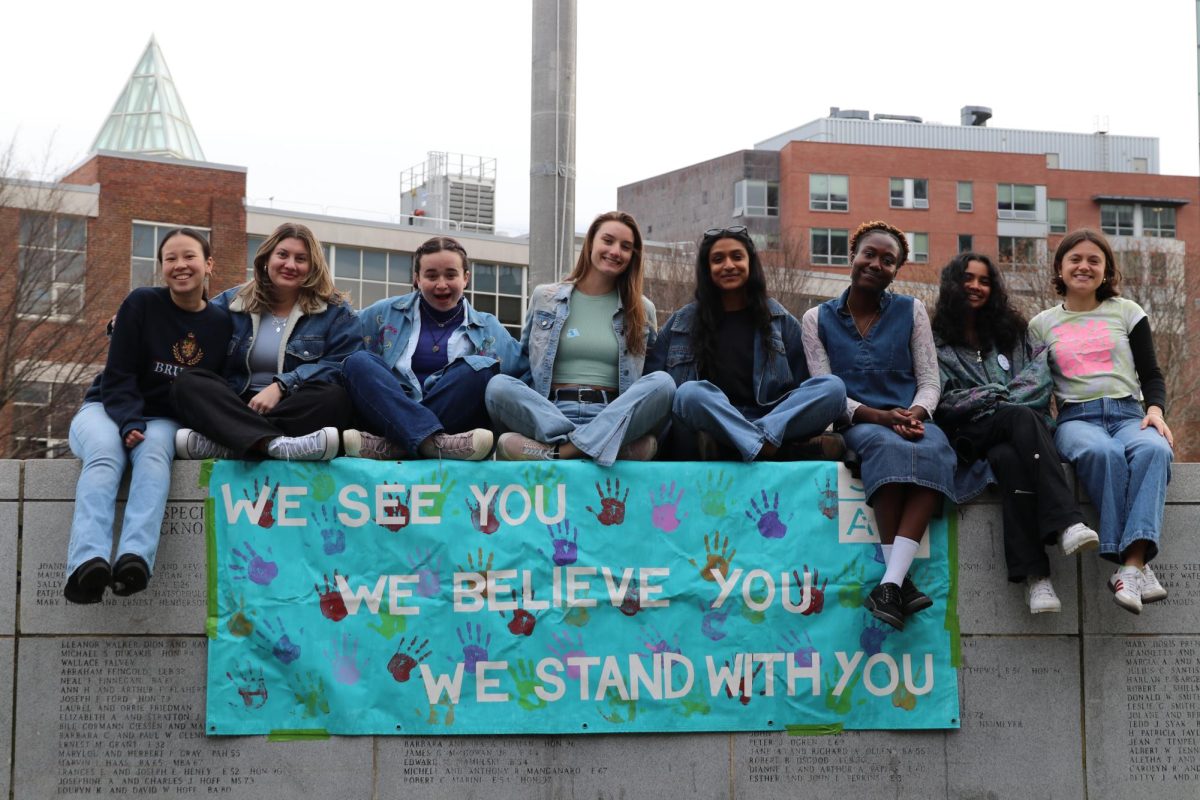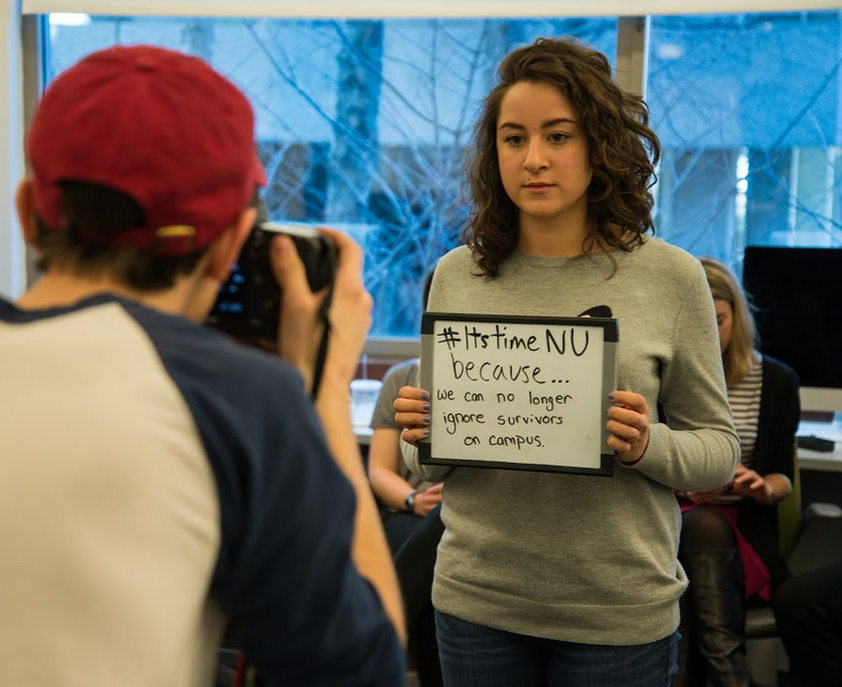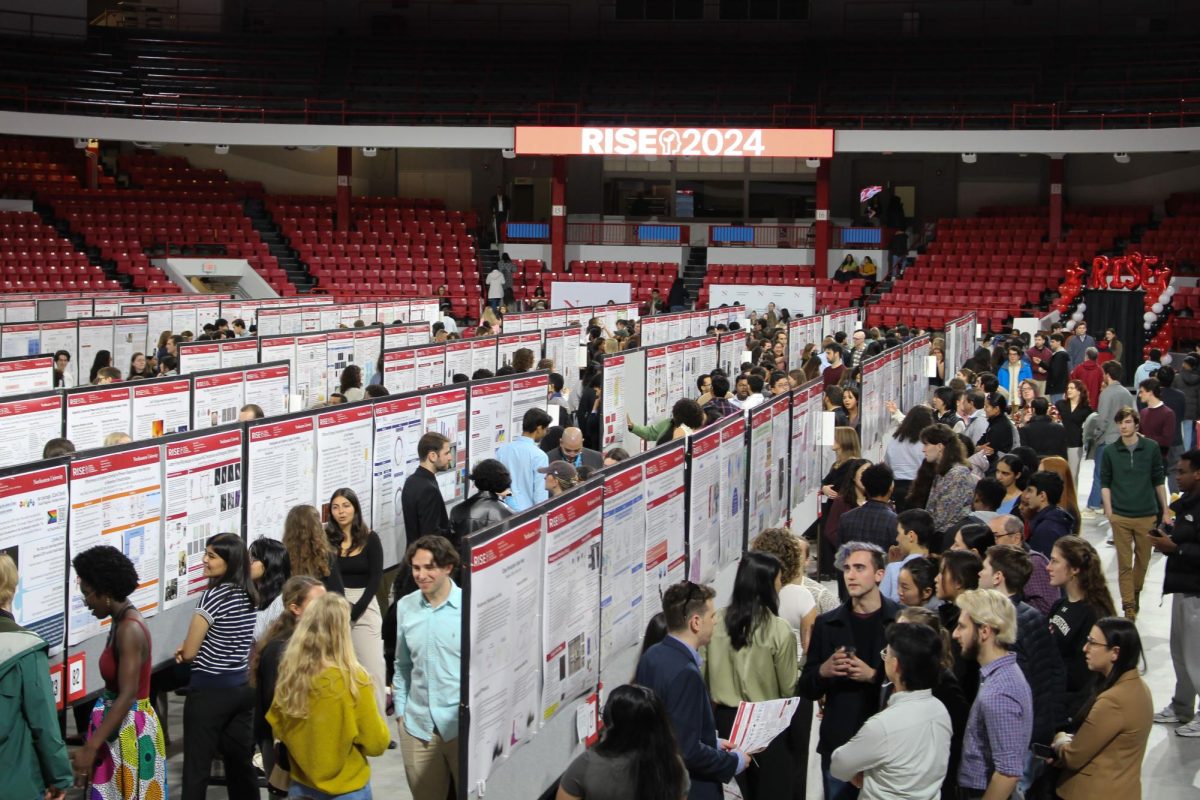By Olivia Arnold, news correspondent
Amid growing awareness of sexual assault on college campuses and a Title IX suit filed against the university, Northeastern students are stepping up and advocating for increased transparency and resources for survivors on campus.
The Sexual Assault Response Campaign (SARC), a student subcommittee of Northeastern University Sexual Health Advocacy, Resources and Education (NU SHARE), is delivering a letter demanding that the university publish the results of the 2014 Campus Climate Survey on Sexual Assault.
The survey was distributed via email to random students in October of last year, but the results have not been made public. The selected students answered questions about how safe they felt on campus, their knowledge of the university’s resources for sexual assaults and how comfortable or secure they felt accessing those resources.
SARC will deliver a letter to Vice President of Student Affairs Madeleine Estabrook on April 6, in an attempt to pressure the administration to commit to a timeline for when they will publicize the results of the survey.
“[The survey] was an initiative by Northeastern that we actually really applaud,” Kate Frisher, a senior international affairs major and member of SARC, said. “Our issue is it was not publicized … and they are doing nothing, to our knowledge, with the data.”
Relying on statistics for cases reported to the police alone is not enough to provide a full picture of the sexual assault issue being faced on college campuses, according to Frisher. Campus climate surveys were recommended by a White House Task Force report published in April 2014 after underreporting of campus assaults was identified as a problem that was skewing statistics.
“Only 2 percent of incapacitated sexual assault survivors, and 13 percent of forcible rape survivors, report the crime to campus or local law enforcement,” according to Not Alone: The First Report of the White House Task Force to Protect Students from Sexual Assault.
Eighty percent of rape and sexual assaults against college students go unreported to the police, and students also knew their perpetrator in 80 percent of the cases, according to a report titled “Rape and Sexual Assault Victimization Among College-Age Females, 1995–2013,” published by the Justice Department on Dec. 11, 2014.
Northeastern is one of 95 colleges under federal investigation by the US Department of Education’s Office for Civil Rights for Title IX violations. Title IX is part of the 1972 Education Amendments and prohibits discrimination based on sex in education programs and activities, including rape, sexual assault, sexual harassment and sexual and domestic violence.
“We know that there is a serious problem, especially related to gender violence, that we don’t think the university administration is adequately responding to,” Kailtin Beegle, a sophomore political science and international affairs major and member of SARC, said. “And we think if [Northeastern] were to release the results of that climate survey, it would more accurately reflect how students are feeling on campus and some of the needs that still go unmet.”
Members of SARC hope that publishing the results of the climate survey will expose what they feel are gaping holes in the resources for sexual assault survivors at Northeastern, which members say is a confusing and ill-equipped process.
“Currently, we find that the university actually will not even publish a manual or any instructions on how to receive help for these issues. They will not direct students. They will not even outline the process,” Beegle said. “[NU SHARE has] been focusing on this for about a year now, and even some of us are still confused on what happens when.”
The Violence, Support, Intervention and Outreach Network (ViSION), is Northeastern’s current sexual assault services provider. According to Beegle, ViSION’s primary goal is ensuring that the victims complete a judicial process with the Office of Student Conduct and Conflict Resolution (O.S.C.C.R.).
For emotional and physical health concerns, ViSION will often direct students to the University Health and Counseling Services (UHCS). However, UHCS does not have any therapists or nurses specially trained to handle rape cases, or advocates who can serve as experts in regard to sexual assault to guide the students through the process of reporting an incident to the university and seeking counseling. Therefore, either ViSION or UHCS will often recommend that students facing any sexual harassment or assault seek help from the Boston Area Rape Crisis Center, located approximately 2.5 miles off campus in Cambridge.
“We are relying a lot on community resources to currently help a population of students who are … numbered at around 20,000, which is an unnecessary burden on the surrounding community,” Beegle said.
Northeastern is the only major school in Boston that does not have a physical office building for sexual assault services, according to Frisher. Reporting to ViSION is done via email or telephone, with two employees providing those services during business hours. If a student needs to report an incident that occurs over the weekend or at a time that does not fall within business hours, then he or she must report it to the Northeastern University Police Department (NUPD). NUPD, however, only has one officer per shift that is specially trained in sexual assault responses.
“We think there area a lot of issues in the reporting and services system to begin with, but we think that one of the biggest that we’ve seen is that people can’t access these services because there is no one space where you can go … where you feel comfortable reporting,” Frisher said.
To provide a physical space for sexual assault and gender discrimination resources, SARC was able to successfully get a question on the university ballot that read, “Do you support a gender resource center on campus?” Students were able to vote on this question starting Thursday, March 26 through April 1, and the results will be announced on April 6, the same day that SARC will deliver the letter.
“As part of offering first-rate resources to our students, we regularly solicit feedback to assess awareness of available resources and to improve our efforts,” Renata Nyul, director of communications, said in an email statement to The News. “As the case is with many surveys, the Campus Climate Survey promised confidentiality to respondents. The findings are used only to inform our efforts and improve outcomes.”
According to Nyul, the survey has been beneficial for Northeastern.
“The Campus Climate Survey has been extremely useful in assessing our students’ awareness and knowledge of information and resources related to sexual violence,” she said.
According to members of SARC, keeping the information from university students makes the data collected by the survey less valuable.
“By refusing to acknowledge that a problem exists, it keeps perpetuating a hostile and unsafe environment for survivors,” Frisher said. “So releasing the data, we think, would be a really good step toward transparency. It’d be a first step toward allowing us to collectively, as a community, look at what our issues are and decide how we want to move forward.”
Photo by Scotty Schenck












